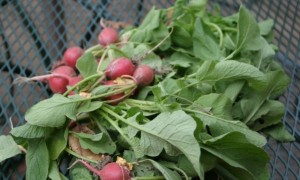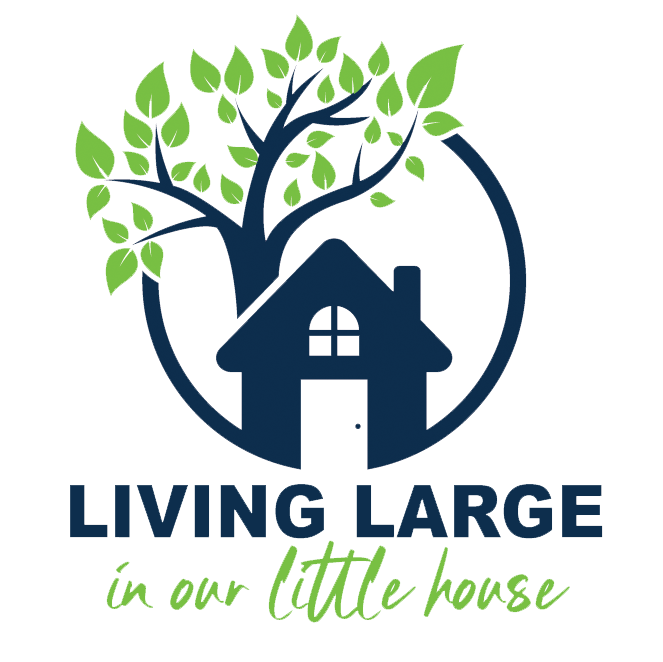Study Doesn’t Convince me of the Benefits of Not Eating Organic
The results of a new study by Stanford researchers this week say that organic food doesn’t have more nutritional value than conventionally raised or grown food.
The response I’ve been hearing from a lot of my friends and our Living Large Facebook community boils down to “duh.”
We’ve been purchasing organic milk and free range organic eggs for over 20 years. Produce when we can get it and meat for well over a decade.
Not because we felt that the nutritional value was higher, but because we were trying to keep as many chemicals off of our tables and from our bodies as possible and because we feel it is a better choice overall for our planet.
Studies have shown that the fresher the produce, organic or not, the more nutrients the produce retains, so we also try to buy freshly picked organic to get more nutritional value and if we cannot get organic, we try to buy freshly picked, but we don’t choose organic over conventional for nutritional value.
News tickers on television screens and headlines all over this week seemed to suggest that the price of organics isn’t worth it.
As a journalist myself, I still have to wonder if the Stanford study really wasn’t funded outside of the university and I also wonder about the timing of the release of the study, when Californians – where Stanford University is located – are to vote on labeling of GMOs in November.
Coincidence?
This article from The New York Times sums up the controversy best, I believe, but I believe it still gives a misleading headline “Stanford Scientists Cast Doubt on Advantages of Organic Meat and Produce,” by making the cursory news reader believe that organic food may not be worth the cost.
In reality, when you read the entire article, it seems the only thing the study revealed is that an organic carrot doesn’t have any more nutrients than a conventionally grown carrot.
The study, according to The NYT article did in fact find:
- Fewer traces of pesticides on organic grown food, which led to less traces of pesticides in urine of children who ate organic foods.
- Organic chicken and pork were less likely to be contaminated by antibiotic-resistant bacteria.
- Organic milk contained more omega-3 fatty acids.
- Organic produce contains overall higher levels of phosphorus than conventional produce.
- Organic produce also contained more compounds known as phenols, believed to help prevent cancer.
- Organic meat contains considerably lower levels of antibiotic-resistant bacteria than conventionally raised animals
The study doesn’t do anything to change my mind about our organic buy habits, it really only reinforces them. How about you?









I’ll always, always choose organic over non-organic. It’s just common sense. And I say that having grown up on a farm where pesticides were used regularly — the heavy-duty ones like DDT — and where a lot of the farmers, including my dad, died from pancreatic cancer. Organic is the only way for me.
So sorry about your dad, Jane. I agree and believe that many of our modern day illnesses are caused by the chemicals we are putting into our bodies.
I’m not sure what to make of this study–it seemed to grab the headlines for a couple days and now it’s disappeared into the background. It’s hard, though, as a parent to sometimes justify paying more for organics when you’re on a tight budget. Thankfully some organics are now the same price as regular variety.
I very much understand budgets and support families growing their own, even in urban farm situations. The way I look at it, is the cost of NOT feeding our children the highest quality, most natural products possible could be way too high later in life.
Sometimes, I look at these studies and shake my head. This one simply defies common sense.
And I’m sure you could find a funny way to write about it, Ruth!
The organic standard is still the only program that requires full disclosure of agriculture, processing and preparation of our food. The sustenance may or may not have more nutritional value for our bodies, but you have much more information about how it was made. That allows us to make consumer decisions that support the sustainability of our systems, preserves soil and clean water, avoids the possible contaminants of GMO, antibiotics, pesticides and inorganic fertilizers. In a perfect world, all production that DOES NOT MEET THE ORGANIC STANDARD SHOULD BEAR THE BURDEN OF PROVING THAT THE METHODS USED ARE BETTER FOR US! How did it become that organic has to be proven against factory farms and industrial foods? Since when does organic farming and production need to be defended against all other chemical and food additive methods? Why must we keep on guessing what is REALLY in our food?
Thanks for your post, Luther. I agree. When we first moved here, I went into the locally owned grocery, which still has an old fashioned butcher shop. “I was wondering if you had any grass fed, free range or organic meat?” I asked. He looked at me like I was from Mars (a look I still sometimes get around here) and said in his thick southern drawl, “Nope. But I have it processed the ‘regular’ way…” The “regular” way meaning animals are huddled into crowded feed lots, given an unnatural diet of corn and who-knows-what-else and then crammed into slaughter chutes. Um, if that’s the “regular” way, I’ll take the natural “irregular” way anytime.
When I eat organic I feel more satisfied with less food than when I eat conventional. I remember once I was eating at a persons house eating plate full after plate full.. and I never did feel satisfaction .
Interesting, Susan.
And also, it seems that organic produce simply tastes better, and more like how I remember fruits and veggies tasting years ago.
I agree, Merr. Organic food doesn’t seem to last as long, so it doesn’t have that freakish fake food taste or texture. I know exactly what you mean…
I’m with you. You buy organics to keep chemicals out of your body and the ground. Not because you expect your carrot to magically have more vitamins!
Exactly, Melanie. I just didn’t understand the whole point of all of the headlines.
Who on earth ever thought organics had higher nutritional value? I do not know why they even did this study because I never heard anyone touting this as a benefit of organic food. I feel as though this study will discourage many people from buying organic and it’s just unfortunate that it was not presented more clearly in the news media.
I don’t know, but they said this is why most people buy organics? I wonder on what planet? I’ve never heard anyone cite that as a reason.
Thanks for your analysis. So hard to make sense of studies without digging in.
Irene
My pleasure.
Gospel. There are many variables that are hard to test. For instance, organic also generally uses different seeds. So in the case of tomatoes, I’m guessing organic heirloom tomatoes have more lycopene–they are brighter. You can see it. I’m sure many other foods are a draw, but I’d prefer we lived in a sustainable world.
I’m there with you, Alisa.
I just wrote about the same subject for Yahoo Shine, and have been reading a lot of various responses to the studies in the media. Nutrition is just part of the equation here; pesticides and sustainability are things that must be considered when deciding whether or not to eat organic. I’m afraid the analysis of all the studies done by the Stanford researchers are ignoring a lot of the issues. I know that’s not what they were after – they were merely analyzing nutrition – but many people may not realize that.
Your arrticle was great, Sheryl.
Yes, it was rather a stupid study to waste money on. Everyone who knows about organic foods know that they don’t have pesticides or chemicals on them.
LOL, Heather, they can find a lot of silly studies, me thinks!
Also, to add to what Michael posted, think cocktail of pesticides. Body Burden is a concept I ignored until watching Bill Moyers around 10 years ago. He was shocked to discover his body contained toxic chemicals. Many bioaccumulate. I was upset by this study because it’s focus was off. You may be right about the timing, too. Finally, endocrine disruption is especially bad for the developing fetus, so pregnant women need to be extra careful to eat organic.
Thanks for the reminder for pregnant women to try to stay away from the hormones and pesticides.
To me it isn’t which is more nutritious, it is about keeping pesticides out of me and my family. Sure they say the pesticides are safe but those same companies also said DDT was safe too…
Exactly, Michael. What they tell us is good for us today probably will not be down the road. I’ve never trusted pesticides.